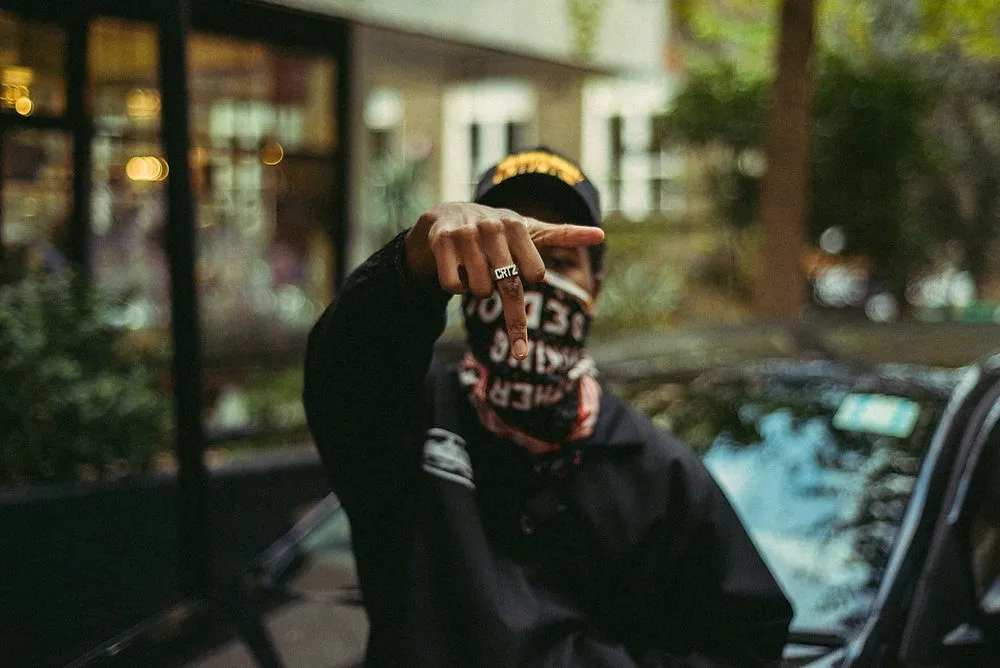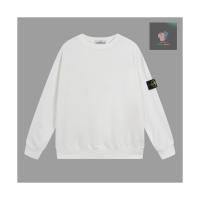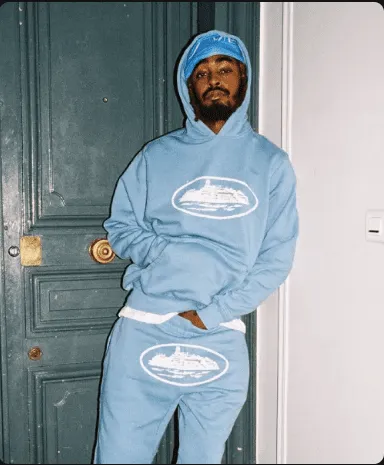Craft vs. Culture in Modern Streetwear

Strong 8k brings an ultra-HD IPTV experience to your living room and your pocket.
Streetwear has long evolved into something far beyond logo-stamped hoodies and engineered sneakers. It’s culture, identity, activism and art—woven seamlessly into fabric and worn as a statement. Two brands that sit at opposite ends of this cultural spectrum are Kapital, the venerable Japanese atelier rooted in history and craftsmanship, and Corteiz (styled CRTZ), the insurgent London collective embodying youthful defiance. Though their aesthetics couldn’t be more divergent, they both shape our understanding of what modern fashion represents.
From the Heart of Japanese Denim: The Genesis of Kapital
Kapital’s narrative begins in Okayama, Japan, an area celebrated as the very birthplace of Japanese denim. Founded in 1984 by Toshikiyo Hirata, and later championed by his son Kiro Hirata, Kapital grew from a modest factory into a singular creative force. Every thread, stitch, and silhouette emerges from purposeful experimentation, driven by reverence for traditional dyeing, weaving, and mending methods such as sashiko stitchwork, indigo dye, and boro patchwork. Their Century Denim line—jeans conceived to stand the test of time, even generations—exemplifies Kapital’s philosophy. This isn’t fast fashion chasing seasonality; it’s wearable history, a deliberate celebration of longevity and transformation. More than clothing, Kapital pieces serve as heirlooms: denim, upset scarves, or patchwork jackets that crack, fade, and grow character, mirroring the lives of those who wear them.
Kapital appeal extends beyond the surface of utility. In its layered textures, folkloric patterns, patched motifs, and whimsical skull or smiley face prints, one senses a playful yet philosophical spirit. The garments look the way Kapital crafts them: slowly, intentionally, and with deep respect for fabric and technique. Kapital is not merely worn; it is inhabited by individuals who see their clothes as living canvases.
Under the Streets of London: The Arrival of Corteiz
In stark contrast stands Corteiz—a brand of immediacy, rebellion, and unfiltered youth energy. Launched by the enigmatic Clint419 in the early 2020s, Corteiz rose at the intersection of Shoreditch’s grit and the rhythmic pulse of London’s drill music scene. There are no sprawling runway shows or couture fashion houses behind it. Instead, Corteiz emerged through impromptu pop-up setups, social media virality, and an almost cult-like cadence of limited releases and cryptic messaging.
Corteiz’s aesthetic is direct and uncompromising. Bold graphics stamp across tracksuits, cargo pants, hoodies, and tees—often punctuated with the Alcatraz-style logo or defiant slogans like “Rules the World.” These items aren’t presented in polished boutiques; they’re dropped in public spaces, sometimes only hours ahead, shared via a cascade of online clues. This guerrilla retail approach turns each drop into a cultural event—an exchange of energy between brand and community rather than a mere commercial transaction.
To wear Corteiz is to belong. Its garments carry the power and pride of a generation that values loyalty, directness, and independence. Sporting Corteiz signals you’re part of something that pushed at the edges, built itself from the streets, and refused to conform. The clothes don’t whisper—they declare.
Roots of Creative Philosophy
Kapital’s creative universe is woven from the threads of Japanese folklore, traditional craftsmanship, and Americana nostalgia. Each collection can feel like a museum exhibition: part visual archive, part experimental textile workshop. The garments are heavy with history and texture—each patch, seam, and repair echoing legacy. Kapital champions the imperfections of handcraft, the character born from aging denim, and the philosophy that clothes should evolve with you over time.
Corteiz, conversely, thrives on immediacy and cultural urgency. Inspired by West London’s street culture, music, and the relentlessness of contemporary youth, Corteiz reflects a world in motion—no sewing rooms, no denim fades, just bold gestures and powerful presence. Where Kapital invites you to slow down and savor it stitch by stitch, Corteiz demands you join the moment: be bold, be now, and own the streets you walk.
Cultures of Community: Collectors Versus Crew
Kapital resonates most with collectors, artisans, stylists, and aficionados who appreciate craftsmanship and heritage. A Kapital jacket isn’t merely a fashion item; it’s a piece of living history—underscored by the fact that its denim grows with age, evolves with time, and becomes personal to its wearer.
Corteiz, in contrast, cultivates a communal identity rooted in exclusivity and culture. Fans queue outside pop-ups, share clandestine drop locations, and wear Corteiz as testimony of belonging. The clothing becomes a signifier—“I was there,” “we belong to the collective.” Corteiz isn’t about quiet appreciation of fabric; it’s about loud presence, reverberating in a digital-suburban social landscape.
Craftsmanship or Expression: The Core Divide
At the heart of Kapital is craft. Heritage dyeing, indulgent layering, painstaking attention to patchwork and mending, and the quiet poetry of Japanese textile history define its work. Kapital’s pieces invite introspection—on quality, patience, and transformation.
Corteiz grimaces at the notion of craft anew. Its power lies in messaging: raw, direct, and bold. Corteiz subverts retail norms by forgoing traditional storefronts, orchestrating social movements through fashion, and leveraging scarcity to amplify cultural resonance. Production quality, while solid, rarely takes center stage—the brand’s gestalt exists in its momentum.
Youth, Identity, Legacy
Kapital’s narrative celebrates legacy. Its patrons may range from Japanese denim rectifiers to stylists in Paris, all seeking garments that transcend seasons and speak to craftsmanship. The brand is a pilgrimage for those who value the texture of history and the weight of fabric as legacy. Corteiz speaks directly to modern youth identity: those who crave belonging without compromise, relevance without permission, and impact beyond trends. Corteiz doesn’t just outfit its wearers—it rallies them. Its customers believe in collective identity—both online and offline—and are drawn by the promise that Corteiz isn’t just a brand, but a force.
Global Reach and Cultural Currency
Kapital, though inherently niche, has gained international respect. It’s common to see its layers in fashion editorials, denim encyclopedias, and museum-like retrospectives. The brand is worn by tastemakers who seek authenticity. Its pricing reflects this—premium and purposeful, aligning with its narrative of longevity. Though smaller in output, Corteiz has disrupted the global streetwear conversation. Through viral moments and influential collaborations—perhaps a "Rules the World" drop teasing a partnership with a major athletic label—the brand has cracked open mainstream headlines without losing its underground core. In doing so, Corteiz demonstrates how streetwear today is more than look or label: it’s platform, protest, practice.
How Kapital and Corteiz Reflect Broader Trends
Kapital reminds us that slow fashion and heritage techniques are more than marketing buzzwords—they are lifelines to quality, depth, and connection. In an era of overproduction, Kapital’s longevity and ethos feel subversive, leaning against the mainstream tide of transient trends. Corteiz highlights the flip side of fashion in the digital age: instantaneous culture, communal rebellion, digital commerce littered with urgency and exclusivity. Fashion becomes content, content becomes movement, and clothes become a bridging voice.
Final Reflection: Complementary Opposites
Though they may seem rivals, Kapital and Corteiz reveal how expansive modern fashion truly is. Kapital offers introspection, artistry, and continuity. Corteiz offers energy, belonging, and momentum. One moves slowly through time; the other pulses through it. Neither is “better”—each answers a different cultural call.
If you seek heritage and craft steeped in labor, Kapital is your pilgrimage. If you yearn for cultural relevance, rebellion, and collective identity, Corteiz is your rallying cry. Together, they demonstrate that fashion has transcended silhouette. It is now story, community, philosophy—woven into fabric, language, ritual and identity.
Note: IndiBlogHub features both user-submitted and editorial content. We do not verify third-party contributions. Read our Disclaimer and Privacy Policyfor details.



